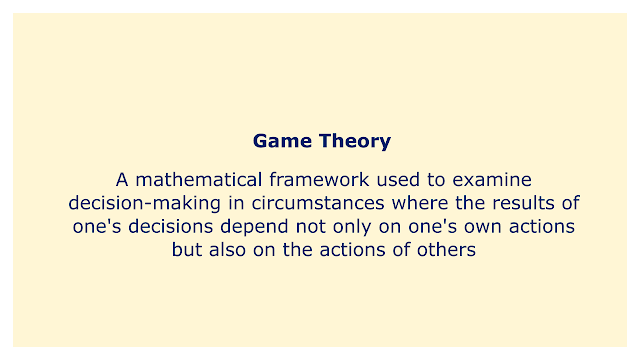 |
| Image: Moneybestpal.com |
Game theory is a mathematical framework used to examine decision-making in circumstances where the results of one's decisions depend not only on one's own actions but also on the actions of others.
It offers a tool to simulate and examine the strategic interactions among sensible decision-makers. The fundamental tenet of game theory is that participants are self-interested and rationally act to maximize their gains.
A game's fundamental elements are its players, strategy, and rewards. In the game, players make the decisions, and tactics are the various possible actions that a player might take. Payoffs are the benefits or expenses related to each potential game result that depends on the decisions made by all participants.
A game's fundamental elements are its players, strategy, and rewards. In the game, players make the decisions, and tactics are the various possible actions that a player might take. Payoffs are the benefits or expenses related to each potential game result that depends on the decisions made by all participants.
In addition to economics, politics, psychology, sociology, and biology, game theory is employed in a wide range of disciplines. Instances including bidding, negotiating, voting, and conflict resolution have all been studied using it. The Prisoner's Dilemma, perhaps the most well-known application of game theory, shows how even when cooperation is in everyone's best interests, reasonable people may not choose to do so.
In order to analyze and forecast how people and groups will conduct in strategic interactions, game theory offers a strong instrument. In addition to business, politics, and military strategy, it has significant applications in many other fields.
